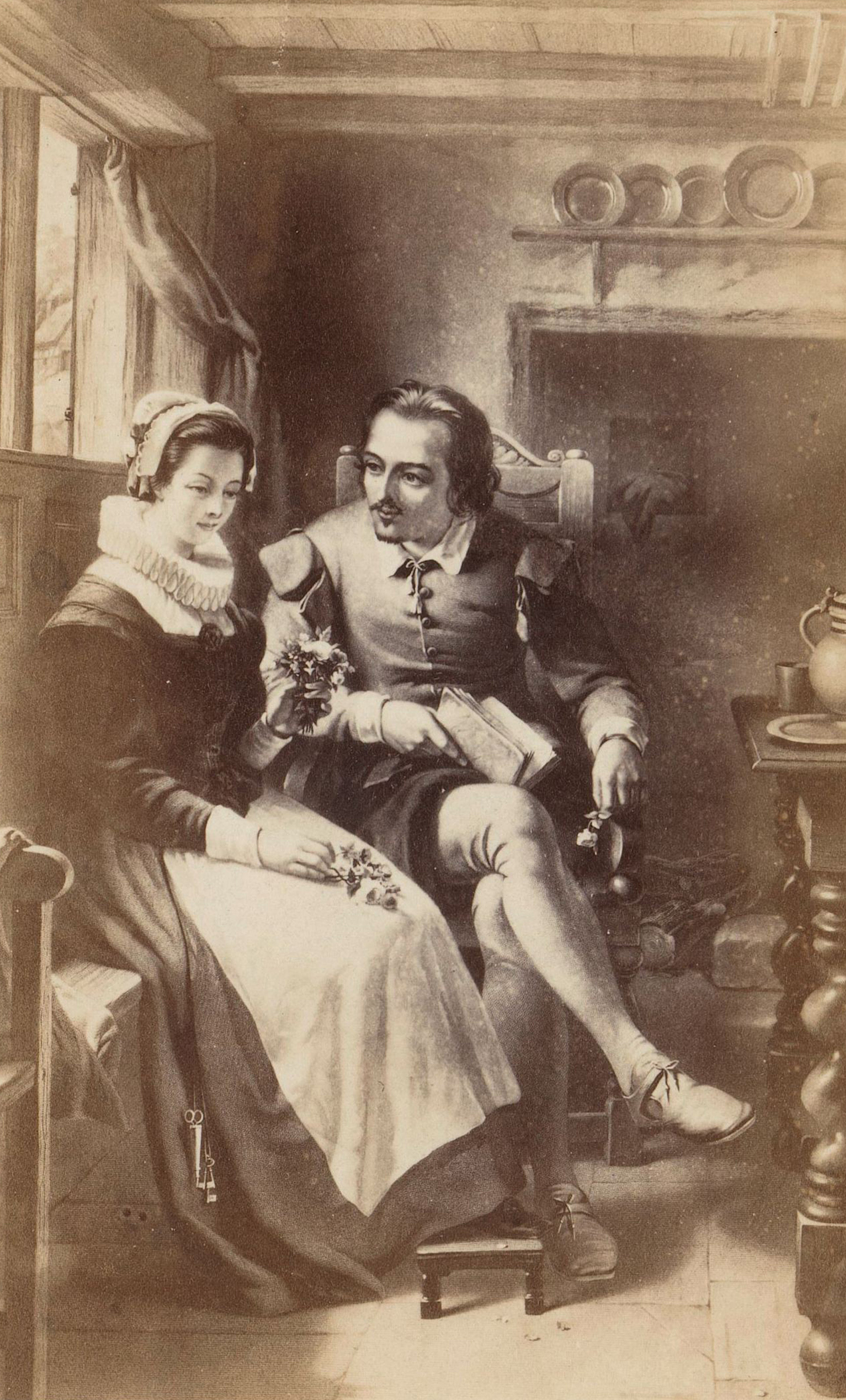More On: books
Matt James' New Book Details What Didn't Make the Cut on 'The Bachelor'
Why Jamie Lynn Spears Couldn't Tell Sister Britney About Her Teen Pregnancy
Emily Ratajkowski's 'My Body' Book: 'Blurred Lines' Bombshells and More
Will Smith Recalls Falling 'in Love' with Former Costar Stockard Channing
Elise Museles Shares Nutrition and Diet Secrets in New Book 'Food Story'
Now here’s a period drama. William Shakespeare’s words and sexuality have long been the subject of speculation, but researchers believe their labor has finally confirmed the Bard’s love preferences. By analyzing the language Shakespeare used in his sonnets, Professor Sir Stanley Wells and Dr. Paul Edmondson believe they’ve proved that the poet addressed a handful …
Now here’s a period drama.
William Shakespeare’s words and sexuality have long been the subject of speculation, but researchers believe their labor has finally confirmed the Bard’s love preferences.
By analyzing the language Shakespeare used in his sonnets, Professor Sir Stanley Wells and Dr. Paul Edmondson believe they’ve proved that the poet addressed a handful to women, more to men and the majority to a purposefully genderless love interest, the Telegraph reported.
The scholars chronologically ordered the prolific playwright’s 182 sonnets — 154 standalone sonnets as well as the 28 sonnets found in his plays. In ordering the 14-line rhyming poems, the pair deduced that 27 are addressed to males, 10 to females and the other 145 are “open in their directions of desire.” Those sonnets addressed to loves of unspecified gender include Shakespeare’s best known, Sonnet 18, which includes the famous line “Shall I compare thee to a summer’s day.”

“The language of sexuality in some of the sonnets, which are definitely addressed to a male subject, leaves us in no doubt that Shakespeare was bisexual. It’s become fashionable since the mid-1980s to think of Shakespeare as gay. But he was married and had children,” said Edmondson, referencing Shakespeare’s 34-year marriage to Anne Hathaway. “Some of these sonnets are addressed to a female and others to a male. To reclaim the term bisexual seems to be quite an original thing to be doing.”
In addition to understanding Shakespeare’s sexuality, the scholars also believe their analysis reveals the sonnets were not written as sequences but individually (and sometimes interrelatedly) over the course of at least 30 years.
“Biographical readings that misunderstand Shakespeare’s collection as a unified sonnet sequence hunt for a single, deterministic narrative where, in fact, none exists,” Wells and Edmondson wrote of their findings, which are set to be published by Cambridge University Press in September. The book is titled “All the Sonnets of Shakespeare.”






















